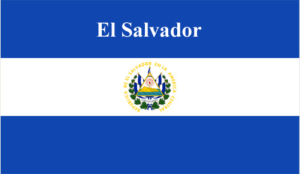 El Salvador’s constitution decrees that education is a basic human right, fundamental to the growth of a democratic, prosperous and just society. School for children ages 7-15 is compulsory and free; the Salvadoran government also mandates free pre-kindergarten and kindergarten programs for younger children.
El Salvador’s constitution decrees that education is a basic human right, fundamental to the growth of a democratic, prosperous and just society. School for children ages 7-15 is compulsory and free; the Salvadoran government also mandates free pre-kindergarten and kindergarten programs for younger children.
Preschool education for 4, 5, and 6-year-olds is provided by the state. Its objectives include fostering pupils’ social, language and motor development. Primary school typically begins at age 7, although 6-year-olds who demonstrate appropriate readiness may be admitted. Primary programs are divided into three cycles of grades 1-3, 4-6, and 7-9.
The goal of secondary education is to provide students with fundamental competencies which will prepare them for higher education or the workforce. Students may choose from a variety of educational paths, from wholly academic to a combination of academics and technical subjects, to vocational. As in other Central American nations, including Costa Rica, students completing secondary school earn the distinction of bachiller.
Secondary school students are graded as follows:
|
Scale |
Grade Description |
|---|---|
|
10 |
Sobresaliente (Outstanding) |
|
9 |
Muy Bueno (Extremely Good) |
|
8 |
Bastante Bueno (Very Good) |
|
6-7 |
Bueno (Good) |
|
5 |
Regular (Pass) |
|
1-4 |
Malo (Fail) |
The following chart depicts the post-secondary grading scale:
|
Scale |
Grade Description |
U.S. Grade Equiv. |
|---|---|---|
|
95-100 |
Excellente |
4.00/A |
|
85-94 |
Muy Bueno (Very Good) |
3.00/B |
|
70-84 |
Bueno (Good) |
2.00/C |
|
0-69 |
Nota Minima |
0.00/F |
Primary school curriculum consists of Spanish, science, (including health classes) social studies, mathematics, art and physical education. Students in grades 7, 8 and 9 also study civics and English.
Secondary schools offer courses in language and literature, foreign language, social studies, social and natural sciences, fine arts, civics, and mathematics. Tenth and eleventh-graders may choose a general education or work-study focus. Depending on whether students pursue an academic or technical track they will spend more time in classes relating to their particular areas of interest.
Salvadorans wishing to take their studies to the tertiary level may choose from over twenty public and private universities, including Universidad Albert Einstein and Universidad Panamericana. A number of technical, business and vocational schools offer programs in a range of professional and work-readiness disciplines.
© 2025 Gaetranslations | Terms & Conditions
Website by: Timefortheweb